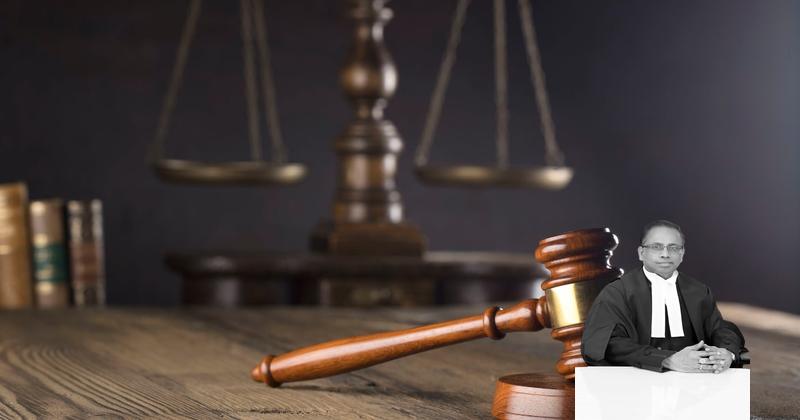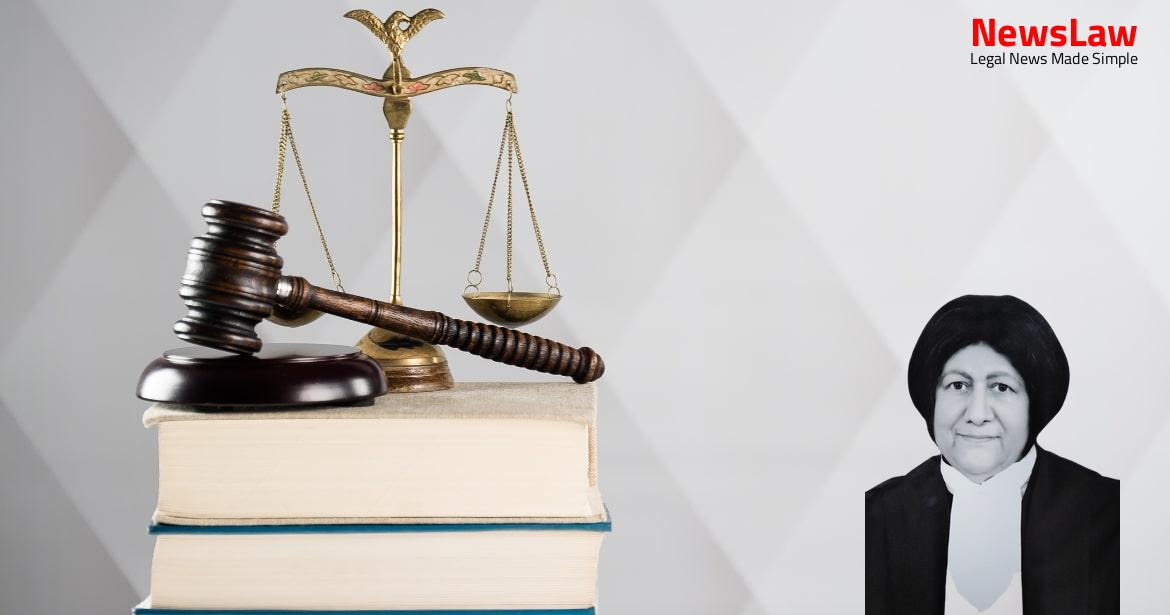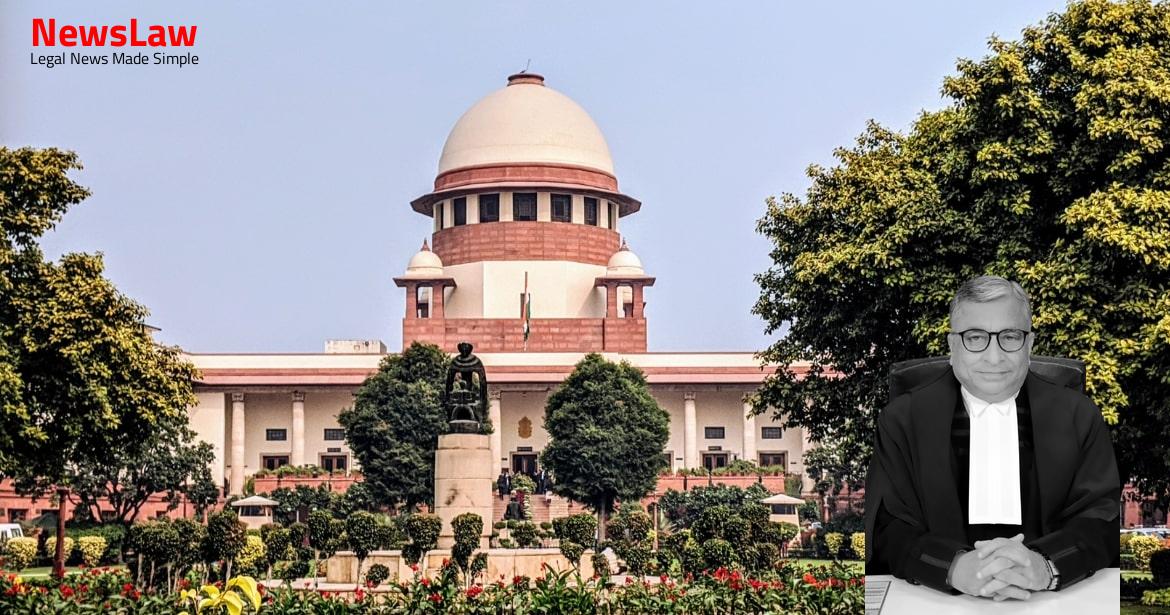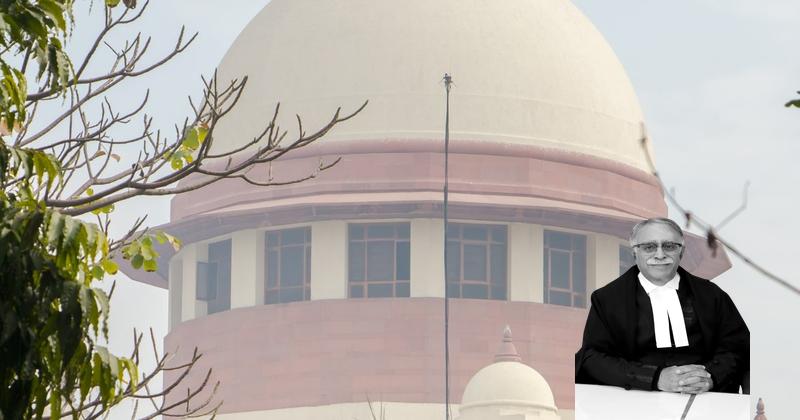The rules and regulations of the Society were incorporated as its bye-laws and were duly registered under the Trusts Act. Even prior to the death of the President due to his poor health, the Executive Body under his presidentship passed a resolution on 01.07.1997 empowering Advocate Babasaheb Wasade (appellant No 1) to be designated as the Working President and he was required to look after day-to-day affairs and management of the Society. Pursuant to the receipt of the said request, the appellant No.1 acting as Working President, issued notice on 03.09.2002 for summoning a special meeting for the elections of new Executive Body. The Assistant Charity Commissioner vide order dated 19.06.2010 allowed the objections and accordingly rejected the Change Report.
Also Read: https://newslaw.in/supreme-court/lack-of-sanction-under-pc-act-in-summoning-order/
The 7 Objectors admittedly fell under this Civil Appeal No.10846 of 2018 category of default.
Said request was allowed, despite objections by the appellants that they had no locus as they were neither trustees or members of the Society or the Trust. ii) Consistent finding recorded by the Authorities, the District Judge and the High Court is that the 7 Objectors were in default in payment of their annual subscription and therefore, were not entitled to any notice for the meeting of the elections as they were prohibited from voting and being counted as member under Section 15 of the Societies Civil Appeal No.10846 of 2018 Registration Act.
v) Reliance has been placed upon by Shri Naphade on a judgment of this Court in the case of Hyderabad Karnataka Education Society Versus Registrar of Societies and Others, where a provision similar to Section 15 of the Registration Act was being considered and this Court held that the provision was valid and a member defaulting in payment of subscription would for all practical purposes be deemed to not be a member entitled to notice.
Hooda submitted that in the aforesaid case under the bye-laws there was a provision that if there was a default, the membership would stand cancelled, which is not the case here as there is no Civil Appeal No.10846 of 2018 such provision under the bye-laws. Wasade could have convened the election meeting for 08.09.2002 as according to the Objectors, it was only the Secretary or in the alternative the President who could have convened the meeting under the bye- Civil Appeal No.10846 of 2018 laws? iii)
Whether lack of notice to the said 7 Objectors would vitiate the entire election meeting of 08.09.2002? One of the earlier proponents of the Doctrine of necessity in Common Law was William Blackstone, who in his book, “Commentaries on the Laws of England” Book 1 of the Rights of Persons, discusses the meeting of the convention-parliament before Charles II’s return, noting that it was an extraordinary measure taken out of necessity. “It is also true, that the convention- parliament, which restored king Charles the second, met above a month before his return; the lords by their own authority, and the commons in pursuance of writs issued in the name of the keepers of the liberty of England by authority of parliament: and that the said parliament sat till the twenty ninth of December, full seven months after the restoration; and enacted many laws, several of which are still in force. 1688, the lords and commons by their own authority, and upon the summons of the prince of Orange, (afterwards king William) met in a convention and therein disposed of the crown and kingdom.
An in such a case as the palpable vacancy of a throne, it follows ex necessitate rei, that the form of the royal writs must be laid aside, otherwise no parliament can ever meet again.
Also Read: https://newslaw.in/case-type/civil/delay-and-laches-in-land-allotment-case/
So that, notwithstanding these two capital exceptions, which were justifiable only on a principle of necessity, (and each of which, by the way, induced a revolution in the government) the rule laid down is in general certain, that the king, only, can convoke a parliament.” 16.
The doctrine has been elaborated, in Halsbury’s Laws of England, 4th edn., page 89, paragraph 73, where it was reiterated that even if all the members of the Tribunal competent to determine a matter were subject to disqualification, they might be authorised and obliged to hear that matter by virtue of the operation of the common law doctrine of necessity. We are of the opinion that the doctrine of bona fide representation would not be quite relevant and as such the decisions cited by the learned Attorney General need not be considered.” 17.
Stated differently, the doctrine of necessity makes it imperative for the authority to decide and considerations of judicial propriety must yield. In the present case also if the two Election Commissioners are able to reach a unanimous decision, there is no need for the Chief Election Commissioner to participate, if not the doctrine of necessity may have to be invoked.” 18. Make efforts from the point of extending the area of operation of the Shikshan Prasarak Mandal.” As per the above clause, the ‘Working President’ was to act on the directions of the President, Executive Body and the General Body.
Wasade, and in particular, when all the 16 surviving and valid Civil Appeal No.10846 of 2018 members had made a request for convening a meeting, no fault could be found with the decision of the Working President Mr. Coming to the next question regarding notice to the objectors, at the outset, Section 15 of the Registration Act is reproduced hereunder: “Section 15 in The Societies Registration Act, 1860 Civil Appeal No.10846 of 2018 15. The specific language used is that such members in default of membership fee would not be entitled to vote and would not be counted as members of the Society. It is a fact that under the bye-laws of the Society, there was no provision that a member defaulting in payment of membership fee and duly covered by the proviso to Section 15 of the Registration Act, would automatically lose his membership or in effect would cease to be a member of the Civil Appeal No.10846 of 2018 Society.
Section 2(b) of the said Act defined ‘member’ which provided that to be treated as a member of the Society for the year concerned, he Civil Appeal No.10846 of 2018 should have been admitted to that membership in accordance with rules and regulations and shall have paid the subscription as laid down therein.
Section 6(2) of the said Act was akin to the proviso to Section 15 of the Registration Act that in default of payment of membership fee for more than three months, the membership would cease. Even if we do not take into consideration the judgment of this Court Hyderabad Karnataka Education Society (supra), we may record that a clear reading and interpretation of the proviso to Section 15 of the Registration Act would disentitle such defaulting members from being given any notice even if their membership was not terminated or ceased. In so far as the fourth question is concerned with Civil Appeal No.10846 of 2018 regard to the participation of invalid members in signing the requisition and being elected in the executive is concerned, the same have been duly explained by the appellants. As their membership(s) have continued, at this stage, objection(s) with regard Civil Appeal No.10846 of 2018 to the validity thereof is not being examined in detail, given the lack of clarity and absence of material facts on this aspect. During the pendency of the appeal before the Joint Charity Commissioner all the seven objectors had died. The impugned judgment and order of the High Court as also the orders rejecting the Change Report regarding General Body Meeting dated 08.09.2002 are set aside and the Change Report is accepted. Thus, they could not have continued as members of the Society in the category of Employee Members even upon their superannuation by merely paying the yearly subscription fee thereby blocking the entry of the persons, who were still employees. It is left open for him to delve into Civil Appeal No.10846 of 2018 all aspects of the matter for ensuring that the issue of membership/members of the Society is resolved in terms of the existing records of the Society, ascertaining the factual position and status of the members at relevant point of time as also their right to continue as members of the Society and be on the electoral roll for conduct of fresh election for constitution of a new Executive Committee.
(VIKRAM NATH)……………………………………J.
Case Title: ADV BABASAHEB WASADE Vs. MANOHAR GANGADHAR MUDDESHWAR (2024 INSC 52)
Case Number: C.A. No.-010846-010846 / 2018



